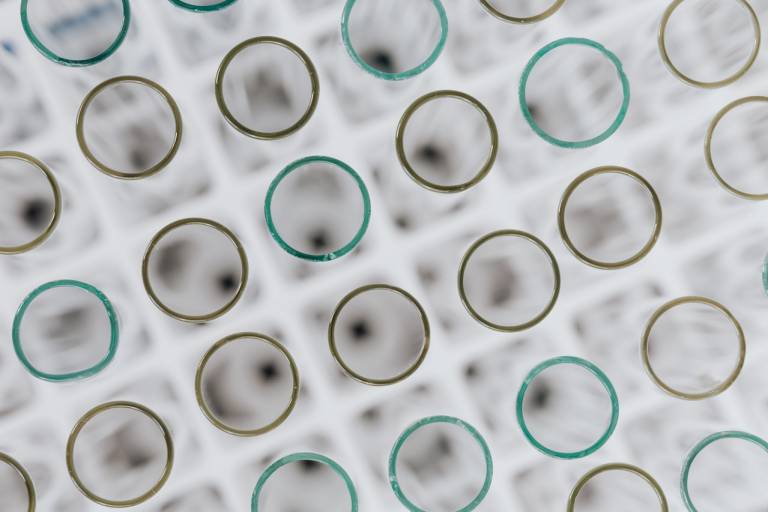UCL part of £8M consortium to develop new therapies to tackle disease-causing genes
16 January 2023
Professor Sarah Tabrizi (UCL Queen Square Institute of Neurology) is leading a group of UCL scientists who are part of a research consortium developing new therapies to tackle faulty genes that cause disease.

The consortium, led by Professor Matthew Wood at the University of Oxford, has been formed with £8M funding by the Nucleic Acid Therapy Accelerator (NATA) to provide more effective targeting and delivery of short DNA or RNA molecules, known as ‘oligonucleotides’, to cells in the body.
Funded through NATA’s Delivery Challenge, the consortium is part of an overall £14M investment that NATA is making, with contributions from medical research charity LifeArc, to overcome scientific challenges relating to nucleic acid therapies. These therapies have the potential to tackle rare and common diseases, including neurodegenerative diseases, by allowing researchers to modify the expression of faulty genes.
Professor Francesco Muntoni, Professor Gillian Bates, Professor Selina Wray and Professor Michael Hanna (all UCL Queen Square Institute of Neurology) are also part of the consortium, which brings together a mix of leading academic and industrial partners including the MRC Toxicology Unit, the University of Massachusetts, King’s College London, the Rosalind Franklin Institute, the Karolinska Institute, Astra Zeneca, Ionis and Silence Therapeutics. Two of the four projects will be coordinated by the UCL teams of Professor Tabrizi and Professor Muntoni.
Professor Tabrizi said:
“One of the biggest challenges we have for nucleic acid therapeutics is delivery to the central nervous system and muscle. This programme will allow us to work on tackling this using model systems, and we hope results in new molecules being translated to the clinic.’’
Professor Michael Hanna, Director of the UCL Queen Square Institute of Neurology, said:
“At the UCL Queen Square Institute of Neurology, we are building a world-leading preclinical to clinical translational neuroscience programme, including advanced genetic therapy development, and this new award is a very significant step forward towards RNA genetic therapy development for neurological diseases.’’
Professor Nick Lench, NATA Executive Director, said:
“We are thrilled to be working with the consortium led by the University of Oxford, that brings together world renowned experts in the field of nucleic acid therapy. We have now funded two consortia that, over the next three to four years, will significantly advance the field of oligonucleotide synthesis and delivery; this represents an important milestone for the UK scientific community and NATA.”
Related:
- Professor Sarah Tabrizi’s academic profile
- Professor Michael Hanna’s academic profile
- Professor Francesco Muntoni’s academic profile
- Professor Gillian Bates’ academic profile
- Professor Selina Wray’s academic profile
- UCL Queen Square Institute of Neurology
- Nucleic Acid Therapy Accelerator
- LifeArc
Photo by Karolina Grabowska on Pexels
 Close
Close

